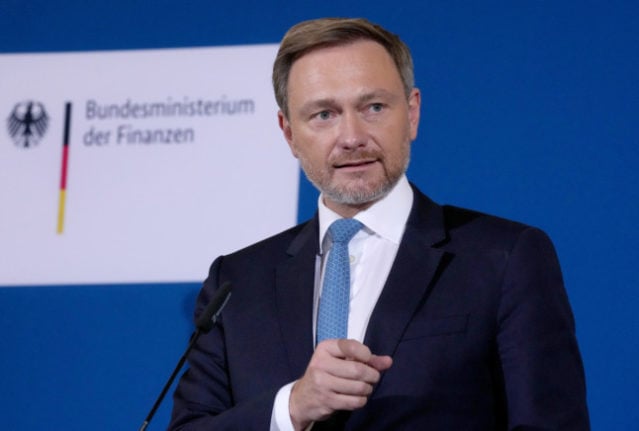The funds will be taken from debts approved to help the government tackle the coronavirus pandemic but which “have not been used”, said Lindner in his first major announcement since taking office on Wednesday.
The government had signed off a plan to borrow €240 billion in 2021 to finance measures to lessen the impact of the pandemic on businesses but will now only need 180 billion euros.
Germany’s coalition government of the Social Democrats, Greens and liberal FDP has pledged that the expansion of sustainable energy will be “drastically accelerated and all hurdles and obstacles will be removed”.
They plan to phase out coal and source 80 percent of the country’s energy from renewable sources by 2030, with the aim of achieving carbon neutrality
With an eye on the powerful automotive industry, the parties have also resolved to put 15 million fully electric cars on the road by 2030, up from just over 500,000 currently.
Lindner said the new funds would also be used to invest in the “digitalisation” of the German economy.
During the coalition negotiations, the centre-left SPD and the Greens had initially proposed more flexibility on fiscal policy.
But Lindner’s pro-business FDP succeeded in pushing for a tougher stance on public finances.
The coalition has promised a return to the so-called debt brake — a rule enshrined in the constitution that normally limits Germany’s public deficit to 0.35 percent of overall annual economic output — by 2023.
The debt brake was lifted to help fight the coronavirus pandemic.
“Only by ensuring stable finances can we meet the requirement of fairness between the generations,” Lindner said on Friday.
READ ALSO: KEY POINTS: Germany’s next government unveils coalition pact




 Please whitelist us to continue reading.
Please whitelist us to continue reading.
Member comments